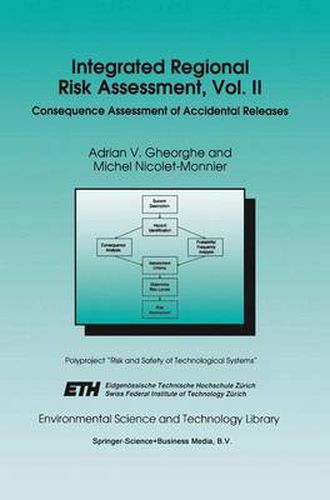Readings Newsletter
Become a Readings Member to make your shopping experience even easier.
Sign in or sign up for free!
You’re not far away from qualifying for FREE standard shipping within Australia
You’ve qualified for FREE standard shipping within Australia
The cart is loading…






This title is printed to order. This book may have been self-published. If so, we cannot guarantee the quality of the content. In the main most books will have gone through the editing process however some may not. We therefore suggest that you be aware of this before ordering this book. If in doubt check either the author or publisher’s details as we are unable to accept any returns unless they are faulty. Please contact us if you have any questions.
Over recent years there has been an increasing awareness of the risks of locating hazardous industries near heavily populated, environmentally sensitive areas. This new awareness demands a novel approach to safety planning for hazardous industries; one that looks at the problem from the point of view of integrated regional risk assessment which, besides the risks arising from natural events, should also include the risks arising from the processing plants, storage and the transportation of dangerous goods. Volume I of Integrated Regional Risk Assessment highlights the main procedures for the assessment of risks to health and environmental impacts from continuous emissions of pollutants into air, water and soil under normal operating conditions. Volume II deals with the assessment of consequences of accidental releases, helping to answer such questions as: What can go wrong? What are the effects and consequences? How often will it happen? GBP/LISTGBP The main procedural steps are supported by relevant, internationally recognised methods of risk assessment. The book also reviews criteria and guidelines for the implementation of risk assessment and management at different stages. Audience: Students, engineers, and scientists in charge of developing new methodologies for hazard analysis and risk assessment; practitioners of environmental protection; local and governmental authorities charged with implementing environmental risk impact procedures and guidelines.
$9.00 standard shipping within Australia
FREE standard shipping within Australia for orders over $100.00
Express & International shipping calculated at checkout
This title is printed to order. This book may have been self-published. If so, we cannot guarantee the quality of the content. In the main most books will have gone through the editing process however some may not. We therefore suggest that you be aware of this before ordering this book. If in doubt check either the author or publisher’s details as we are unable to accept any returns unless they are faulty. Please contact us if you have any questions.
Over recent years there has been an increasing awareness of the risks of locating hazardous industries near heavily populated, environmentally sensitive areas. This new awareness demands a novel approach to safety planning for hazardous industries; one that looks at the problem from the point of view of integrated regional risk assessment which, besides the risks arising from natural events, should also include the risks arising from the processing plants, storage and the transportation of dangerous goods. Volume I of Integrated Regional Risk Assessment highlights the main procedures for the assessment of risks to health and environmental impacts from continuous emissions of pollutants into air, water and soil under normal operating conditions. Volume II deals with the assessment of consequences of accidental releases, helping to answer such questions as: What can go wrong? What are the effects and consequences? How often will it happen? GBP/LISTGBP The main procedural steps are supported by relevant, internationally recognised methods of risk assessment. The book also reviews criteria and guidelines for the implementation of risk assessment and management at different stages. Audience: Students, engineers, and scientists in charge of developing new methodologies for hazard analysis and risk assessment; practitioners of environmental protection; local and governmental authorities charged with implementing environmental risk impact procedures and guidelines.